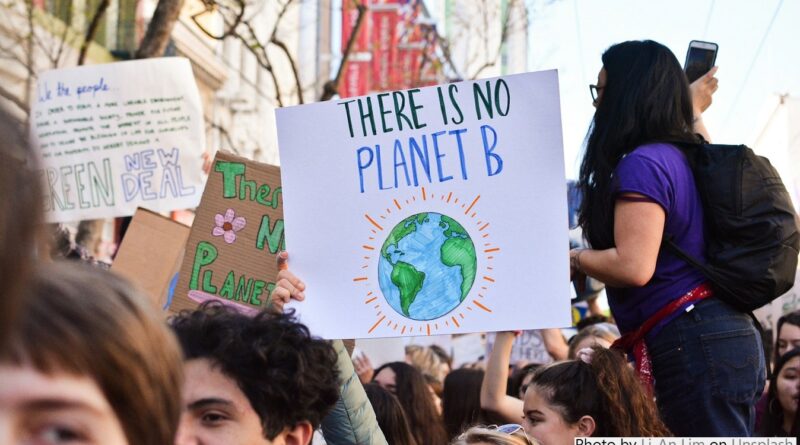Information in Times of Crisis: Learning Together
Information in Times of Crisis: Learning Together
Lisa Nathan, Luanne Sinnamon, Rachael Huegerich, University of British Columbia
Six hours from now, your community will experience one of the following: flooding by at least 3 feet of water; a wildfire evacuation order; or a 2-week, shelter-in-place quarantine directive. As an information professional, what actions would you take to help your community prepare for, prevail, and recover from these types of immediate, episodic crises? In what ways might your response take into account long-standing, ongoing crises of oppression, inequality, and marginalization that are the daily reality of many in your community?
These questions led us to offer a new graduate course, Information in Times of Crisis, during the summer of 2020. With growing recognition of the ways pressing issues such as climate change impacts, racial injustice, and health crises are intertwined, we wanted to better prepare library and information studies graduates to navigate these crises, while experiencing the Covid-19 pandemic together.
—While recognizing the need for more “traditional” disaster planning and leadership skills, we wanted to create a space in the course for the development of self-awareness, cultural humility and empathy—attributes that can strengthen communities facing difficult times—
Crises are ever present in our lives. Each year the cumulative influence of human activity on ecosystems, atmospheric conditions, weather patterns, and ocean currents are better understood by western-trained researchers. The rate of change is increasing, outstripping predictions of when catastrophic events will happen and how bad they will be. Already, extreme disasters have affected every region, with those communities who have contributed the least to climate change often facing its worst effects. The COVID-19 pandemic reminded us that disasters are not restricted to points in time and space but are something we live with every day. Reflections on the intersection of local and global crises led us to consider what we study within Library and Information programs, and why.
The traditional approach to crisis management in libraries is to focus on protecting collections and buildings. More recently, libraries are focusing on supporting their communities in the face of crises, by providing information and other services. According to Renate Chancellor, recent examples of libraries serving as safe community spaces during crises arising from injustice and systemic racism, show that libraries are embracing social activism. While recognizing the need for more “traditional” disaster planning and leadership skills, we wanted to create a space in the course for the development of self-awareness, cultural humility and empathy – attributes that can strengthen communities facing difficult times. Inspired by Paulette Regan’s work, we wanted to “unsettle” ourselves and our students by recognizing that many of the crises we face have deep roots in social injustice, colonialism and exploitation, features of the world in which our discipline and profession are implicated.

Offered during a period of lockdowns and physical isolation, the COVID-19 pandemic was both a backdrop and a pervasive theme, but the course covered many types of disasters, along different scales of impact and temporality. The course was organized into three modules:
- Framing: introduced different types of crises and ways of thinking about them;
- Understanding: examined aspects of crises such as information behaviour, social media and misinformation, and disciplinary perspectives, such as collapse informatics and crisis informatics;
- Response and Reflection: focused on leadership, crisis planning and response, cultural heritage preservation, community engagement, and resilience.
Student feedback on the course shows that people react differently to information in times of crisis. For some, the course material and discussions increased their pandemic stress. Others found it helped them to process and cope with events of the summer, which included devastating forest fires and massive protests against police brutality and systemic racism, layered on top of the pandemic.
As instructors, we learned a great deal. Our initial course structure was overly complex and demanding, and early feedback from students struggling with the impact of the pandemic prompted us to scale back. This emerged as an opportunity to practice empathy and care in a crisis context, which became an important theme throughout the course. We also learned from students’ responses to our sessions on vocational awe and personal resilience. Many students voiced concerns with the resilience narrative, which too often places the responsibility of “dealing well” with crises on individuals, typically those already facing marginalization. Notions of safety and protection of library employees, and empathy in leadership, resonated strongly. Our delights were many. A highlight was the exchange of farewell messages and “gifts”, including poems, playlists, podcast recommendations, and comics for their classmates to enjoy. These thoughtful contributions showed how learning is influenced by emotional aspects of our learning community and the importance of mutual care during a crisis. Our insights from the course include the following:
- Crises Have Deep Roots: Crises are not limited to rare and terrible events; they can be pervasive and persistent, particularly for marginalized groups.
- Power of Narratives: The concept of “collective sensemaking” describes the ways we negotiate understandings and cope with crisis together, including through the stories we learn and unlearn.
- Difficult Conversations are necessary: Instructors need pedagogical approaches that make space for acknowledging long term damage and systemic inequities while also nurturing supportive discourse around difficult issues, such as “holding each other up, while holding each other accountable”.
- Imagining Otherwise: Framings such as “multi-lifespan information system design” create space to question tropes of human-centered, ever-faster progress, and encourage creative, longer-term thinking.
- Social Connection & Learning: Challenges in building a supportive community environment in an online, asynchronous format led to alternative relationship-building methods such as dedicated online office hours (for individual discussions) and synchronous Zoom chats (for group discussions).
- Wide Perspective: Focusing on the broad scope of crises enabled reflection on difficulties and injustice layered through our social structures, institutions, professions and disciplines.
- Space for More Courses: The inspiring extent of research and professional initiatives related to crises suggests many possibilities for future courses.
The insights from this experimental course have inspired several projects to further explore the connections between LIS education, libraries and the climate crisis. These include the creation of a new graduate LIS course – Information Worlds of Climate Justice, and a 4-year research project: Understanding Personal and Public Sense Making in Response to the Climate Crisis (2023-2027). We invite you to learn more and contribute to this growing area of education and research.
Cite this article in APA as: Nathan, L., Sinnamon, L., & Huegerich, R. Information in times of crisis: Learning together. (2025, April 30). https://informationmatters.org/2025/05/information-in-times-of-crisis-learning-together/
Authors
-
I am an Associate Professor and Director at the UBC School of Information. I teach courses on information retrieval, information and data services and management. My research is primarily focused on the human-centred aspects of information retrieval and the ways in which people interact with and make sense of digital information. My current research focuses on climate crisis sensemaking and generative AI search systems.
View all posts -
Rachael Huegerich is a research assistant with the Information Climate Action team and a recent MLIS graduate from the University of British Columbia. They come from a German-American family of farmers and artists in rural Iowa, on the ancestral lands of the Báxoje Máyaⁿ (Ioway) Nation and the Očhéthi Šakówiŋ (Sioux). Their professional career spans schools, community archives, and public libraries, all of which have provided opportunities to nurture learners and imaginers in rural communities. With experience as an English as a Second Language teacher and public library storytime facilitator, Rachael is interested in embodied, place-based, non-hierarchical learning across the lifespan. Their projects, in both professional work and library school courses, emphasize growing and tending relationships across more-than-human ecosystems in small communities. They are drawn to local, thoughtful, and inter/multi-generational approaches to climate justice.
View all posts





